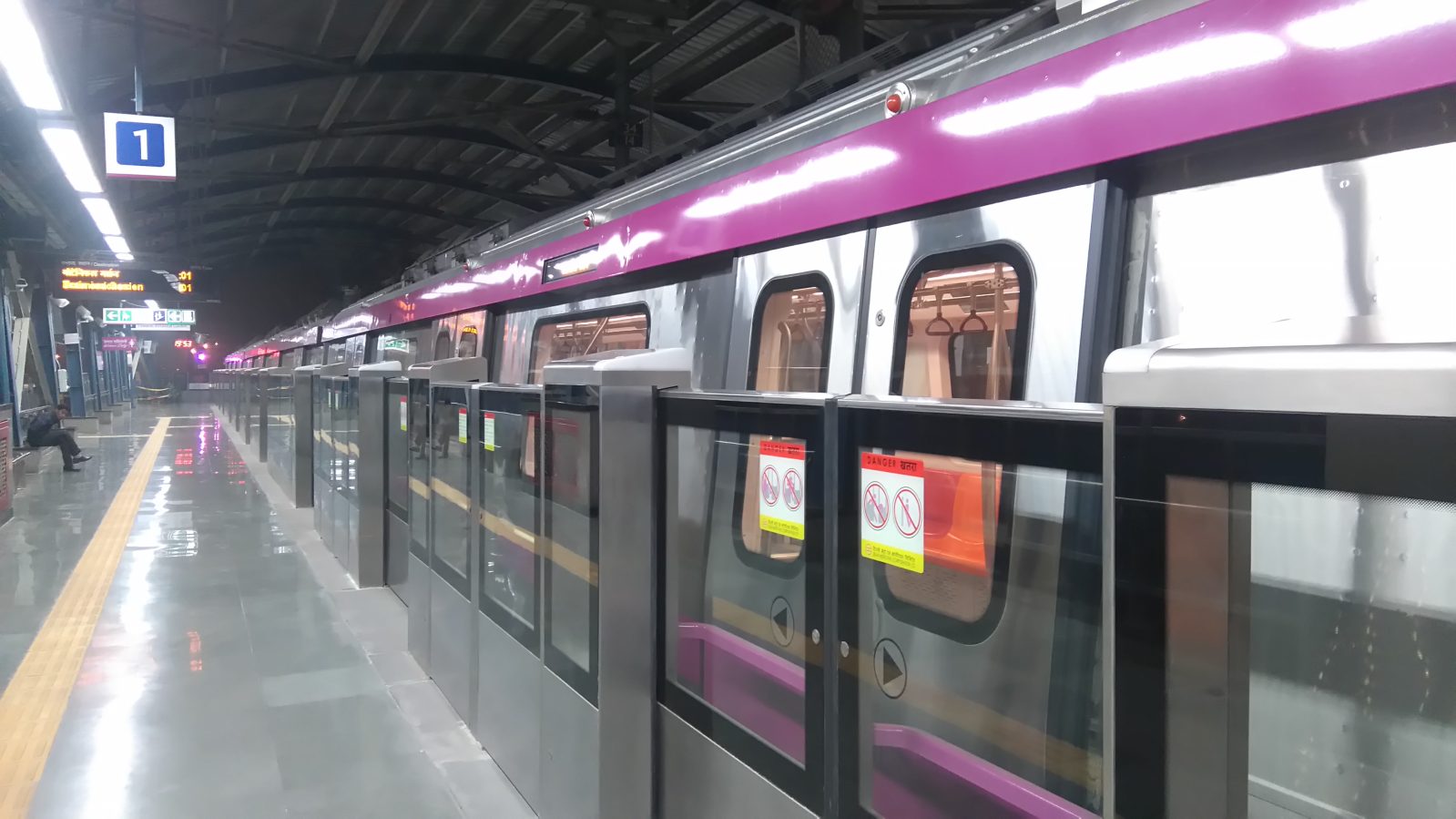
Part of Dehli’s mass transit Metro Rail was shut down over the weekend after what was later reported to have been a medical delivery drone carrying vials of blood coming down on the tracks.
Dehli Metro Rail Corporation (DMRC) announced the closure Sunday afternoon, citing a “security reason” that was later reported to have been a medical delivery drone on the tracks. The link involved the Magenta line, one of the longest in the system, which swoops in a semi-circle to serve 24 stations south of the city center. The disruption effected the last four most eastern stops in that arc from Jasola Vihar Shaheen Bagh to Botanical Garden, with traffic resuming about an hour later.
Read: Swoop Aero to create ‘world’s largest’ drone delivery network in Queensland
Though DMRC remained laconic about the incident, the daily Indian Express cited sources saying the cause was a medical delivery drone on the tracks. A photo accompanying its article showed what appeared to be a mid-sized transport quadcopter lying upside-down straddling one of the rails, its payload facing the sky. The paper also quoted what it identified as a senior police officer saying the UAV was owned and operated by a nearby pharma company that had been using it to transport blood samples.
“It was carrying a box filled with vials of blood,” the officer explained. “There was no other object. The pharma company has all the papers and required licenses for the drones. They use drones to supply medicines or carry samples at times.”
Given the concern of Indian officials over drones being used for illicit activities including drugs and arms running – and their potential uses in aerial terrorist strikes – the presence of a UAV on the tracks of a rail system that carries nearly 1.8 billion people each year had to be of considerable concern.
But even without the decidedly darker prospect of nefarious deployment, the crashing of a drone used for deliveries or other routine services is the kind of incident that risks souring public attitudes on increasing UAV traffic.
Last week it was revealed that a delivery drone failed during a test flight in Scotland from an altitude of as much as 65 meters. In September, a Wing UAV making a run near its Australian boom market of Logan accidently came down on power lines, cutting electricity to thousands of local homes – some for a couple hours.
Read more: Wing delivery drone lands on electrical lines, cutting power in Aussie town
Amazon’s aerial delivery plans, meanwhile, have been repeatedly disrupted by crash incidents that have generated considerable (and unwanted) attention. And while use of UAVs to transport urgently needed medical supplies is a swiftly progressing and vital application, even rare news of biological materials falling from the skies is not the kind of publicity that will be welcomed by sector officials seeking to warm concerned publics to extended use of the craft.
FTC: We use income earning auto affiliate links. More.



Comments